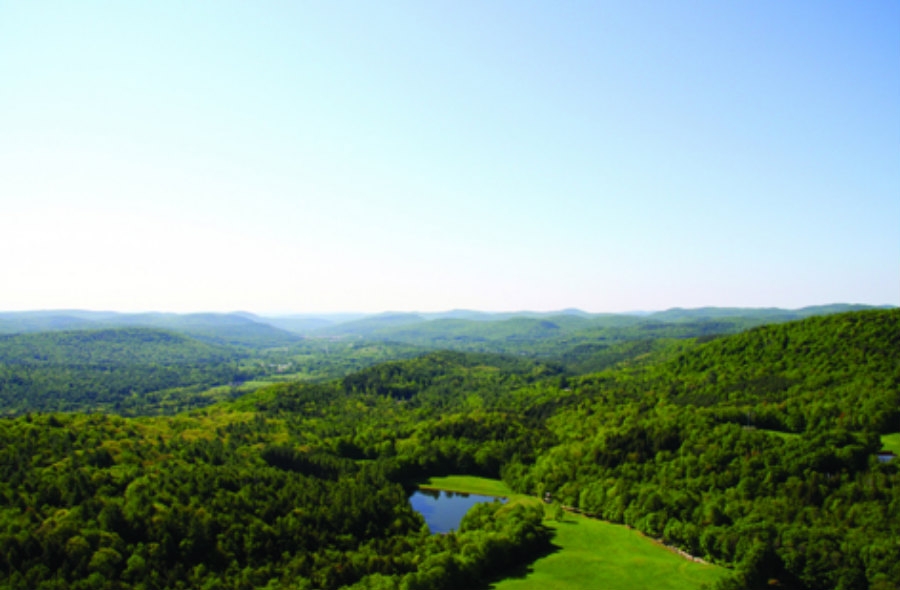
The desire to own land has captivated many, and is insatiable in some.
I’m a land lover, and along with my family proudly call 1,296 acres of Vermont’s Green Mountains my home. I have a profound love for our land, which I admit began as infatuation.
My passion for land inspired me to design a land-centric career, one that facilitated my interest in helping clients achieve thoughtful and intelligent land use and conservation decisions. After 15 years, I’ve come to believe that there are two questions even the most romantic landowner must eventually consider: “What is in the best interest of my property?” and “What is in the best interest of my wealth portfolio?”
The moment I realized that my family’s land had a role to play in its own welfare and protection is the moment that my love affair with it began in earnest, and a whole new world of ownership ideas rose to the surface. Indeed, the challenges inherent in balancing smart financial planning and thoughtful land stewardship in equal measure have, as I’ve witnessed, stimulated a surprising level of creativity that has proven to yield the best outcome for land and wealth security.
One important lesson learned is that for landscapes with productive histories or possibilities, their productivity is optimized when stewarded under management strategies that promote on-site as well as cultural resilience. If the things a land asset produces possess two key attributes — desirability by a worldwide market, and longevity — then its future well-being and value are virtually guaranteed regardless of shorter-term market fluctuations.
My family is creating a design and management model for our two square miles of Vermont hill farm wilderness. We’re drawing on our combined 30 years of experience in agriculture and conservation planning to practice a type of regenerative land use that harnesses our property’s valuable nutrient and water attributes, mitigates and leverages incipient climatic changes, and produces commodities that enhance human well-being. The conservation element of our model is equally future-thinking, allowing for agricultural practices that can withstand the changes inherent in evolution, and by doing so guaranteeing that the value integrity of our land is timeless.
Beyond the romantic reasons for owning land, why is land a smart investment? For one thing, unlike other investments, land is completely within its owner’s control. Being in control is far more appealing than being at the mercy of volatile market dynamics and money managers’ decisions. One can do things to land to influence the market around it, like conserve it and manage it smartly. Land is also a smart investment because it’s a tangible asset that will hold its value, even appreciate over time. And, land can be enjoyed throughout one’s ownership. It is a place to build memories with family and friends.
Many believe that in periods of national or international economic uncertainty, it’s best to hold on to one’s money. Folks in this camp believe such circumstances are unfavorable for investing in long-term assets. I disagree, and rather think such circumstances define the ripest time to invest in long-term assets like land, primarily because those seeking liquidity are trying to sell these assets. It seems others agree with me, like Stan Kroenke, an American entrepreneur who acquired Montana’s Broken O Ranch in November of this year. The Broken O is 124,000 acres and described as one of the largest agricultural operations in the Rocky Mountain West. It was listed for eleven months at $132 million dollars, and Mr. Kroenke paid an undisclosed sale price said to have included nine figures.
While love and control rarely make good bedfellows in human affairs, an informed and creative passion for land can grow generations-long yields that not only transcend, but leverage the vagaries of time.
Now is the perfect time to let your love affair with land flourish.
Shawn M. Smith is the founder and owner of Earth Asset Partnership, LP, an innovative real estate firm that practices holistic land brokerage and counseling. Shawn holds a JD and Master of Studies in Environmental Law, is an expert in land conservation, and has spent 15 years advising high net worth clients about how to protect and grow their real estate portfolios. Today, Shawn’s passion is collaborating with clients on planning for their globally-important land assets.

